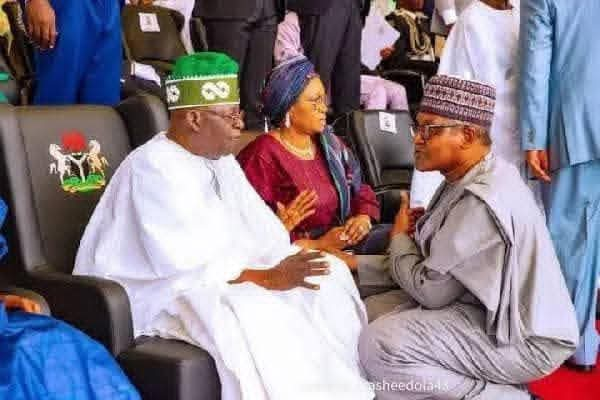By Simbo Olorunfemi
“It always seems impossible until it’s done”
– Nelson Mandela
By all standards, the commissioning of the Dangote refinery and petrochemical project after almost 10 years since the dream was conceived is a phenomenal statement on the fact that nothing is impossible if we will draw to dream, set our minds to doing it and putting in the hard work to make it happen.
The Dangote Refinery project, simply by its realisation, is statement for Nigeria, not just for what it does for the economy, helping the country to make the seismic switch from a massive importer of refined products to one not only able to meet its local need, but an exporter of refined products in one full swoop.
This is a statement for Africa, which now has not only one of the largest refineries in the world, but the largest single-train refinery in the world, owned by an African who, in the process of building it, set many records, rewriting a list of things that had been deemed impossible/improbable but which the project has now established as possible.
The very idea of the project, in the first place, only made sense at the beginning to only a few, perhaps only the man with the dream, Aliko Dangote. It was such an audacious move that it was no surprise that few saw it as achievable. As the cost for completion increased over time and more obstacles surfaced, I can imagine that some of the doubters would have chuckled, saying, ‘Didn’t we say so?’
At the commissioning of the project, the CBN Governor, Godwin Emefiele, recalled how guys at JP Morgan had received with cynicism his pitch about Nigeria’s plans for diversification of the economy through import substitution and export promotion strategies, panning the idea of a single individual building a private refinery capable of meeting Nigeria’s need for refined products as unattainable, as such projects are for sovereigns and not individuals.
That was the second time I was hearing Governor Emefiele recount this story. But think of it. Who would blame JP Morgan though? Success at seeing huge projects to completion, not to talk of such an audacious gigantic venture, was not one what anyone would have associated with Nigeria.
Our record was more of sporadic big dreams that would then up as white elephant projects in mind. But those were usually state-owned enterprises, this was a private enterprise. But then the book had also said that such a huge project could only be taken on by a sovereign, not an individual.
If only they had researched the man, Dangote. The same man that has built the largest sugar refinery as well as the largest cement plant in sub-Saharan Africa within the last 20 years. If anyone could pull this off, that would be Dangote. But even he, if he had been in full understanding of what it has taken to complete the project, perhaps he might have either backed out or scale back.
The project is a huge statement in sheer audacity. It is situated in a land area of approximately 2,635 hectares, which about the six times the size of Victoria Island, Lagos. It comprises of a 650,000 barrels per day refinery, a petrochemical facility with capacity to produce 900,000 metric tons of polypropylene per annum, and urea fertilizer plant with capacity to produce 3 million metric tons of urea annually.
“The Pipeline Infrastructure at the Dangote Petroleum Refinery is the largest anywhere in the world, with 1,100 kilometres to handle 3 billion Standard Cubic Foot of gas per day. The Refinery alone has a 435MW Power Plant that is able to meet the total power requirement of Ibadan DisCo.”
CEO of the company, Sanjay Gupta says, “Everything in this plant by way of size is the first.” Not only is it the largest single-train refinery in the world, it has the world’s largest crude distillation column, which was installed in 2019, which weighs 2,350 tonnes. It also has the world’s heaviest refinery regenerator at 3000 tonnes, which also holds the record as the heaviest single piece of steel structure in the world and the heaviest item ever to be transported over a public road in Africa.
It is a puzzle sitting the size of Dangote’s vision side by side with the man we see in public. How a man can be so daring with his ventures, yet so disarmingly unassuming in person is a mystery. You always wonder where the drive comes from.
For Dangote, the mantra seems to be, ‘anything worth doing at all is worth doing on a grand scale’. For him, it does appear that it has to be either history-making or not at all. “My story is the story of a man and a brand Nigerians have come to know, to love and to accept…In all modesty, we can say we have done very well. There is no business that we are in and we are not No. 1. The worse one that we have, maybe we have a second position. That in itself is our business strategy. We aim to dominate our market, to lead in every market segment.”
It is this drive to dominate its market segment, which, by the way, is the legitimate desire of producers, which propels them to invest hundreds of millions in research, product development and marketing, that many crucify him for, accusing him of monopoly.
As it’s usually the case with many of these accusations that freely make the rounds, they are usually not founded on facts, domain knowledge or sound logic. But because emotion and fear are effective lubricants of misinformation, these allegations catch fire, with the truth hardly ever able to catch up with them.
The story of Dangote is fairly well known, even if it is difficult to separate the wheat from the chaff. By his own admission though, he was born into money, as we would say. He is of the wealthy Dantata family whose fortune has been traced to 3 generations before his. However, it was his grandfather, Sanusi Dantata, that was said to have given him the seed capital with which he went into trading. He would make a huge fortune from merchandising, importing different goods, that he had become one of Nigeria’s richest by the 1990s.
But it was with the turn of democracy in 1999, specifically in 2002 that Dangote made the switch that was turned his life around from being just another Businessman, content with simply angling for profit, to one that might be labelled as development-minded, now paying more attention to growing the local economy through targeted investment in different sectors.
Two public policies will act as further fillip for that: the privatisation programme that saw government offload his interest in several enterprises and the import substitution/backward integration policy aimed at encouraging the private sector, through concessions and incentives to invest in manufacturing rather than continue to import finished and semi-finished products.
This applied to items such as cement, flour, sugar, etc., each meeting with different levels of success. Licences were issued to companies to set up manufacturing plants within a specific window, while enjoying some concessions and waivers on imports, with window set to close at set times. Some companies didn’t take this seriously, perhaps hoping that policies might change, lost to the momentary boom from importation. Dangote, on the other hand, embraced the policies wholeheartedly, making the switch from trading to manufacturing. Not only did it make the switch, it embarked on an aggressive expansion programme, buying up existing plants, building new plants to increase its production capacity and market share.
It’s investment in cement production is a clear example of its focus and determination. In an industry that had been dominated for decades by a multinational, which had perhaps become lethargic, Dangote in 2000 acquired the Federal Government shares in the struggling Benue Cement Company (BCC).
By 2003, Dangote began the construction of the Obajana cement factory, the largest cement plant in the world. From zero in 2000, Dangote had expanded capacity to 20 million metric tonnes in 2009, with Nigeria attaining self-sufficiency in 2012 with excess being exported.
In less than 20 years, Dangote had become the dominant player, with about 70% of the market share. It is now Sub-Saharan Africa’s leading cement company, with a production capacity of 51.6 million tonnes per year across ten countries. Its flagship plant at Obajana is said in some quarters to be one of the largest, if not the largest in the world with 16.25 metric tonnes annual capacity across five lines.
Whatever might be his faults, Dangote is undoubtedly driven by purpose weaved around a nationalistic agenda not only to promote economic development, but rev up the prestige of the nation.
I guess that he is propelled by a desire to make a statement and make history with every venture, not just in the nature of the investment but the size of it in such a way that it will speak positively for Nigeria.
Yet, some are not pleased. Predictably so too. There will always be some who would come across as irritated by any hint of progress. But the refinery project appears to have rubbed off some in the wrong places that they can’t sit still with the facts.
How does coming on stream of the Refinery make it a monopoly? Even if it were to be only player, which it is not, would that be because it was licensed as a monopoly and other players were barred from entry into the market? The Obasanjo administration issued 18 licences in 2002, most of which had to be revoked many years after, having not broken ground. The Buhari administration issued 22 licences in 2018. Some of the modular refineries are ready. BUA is building a capacity in Akwa Ibom. There is hope that the government-owned refineries will finally turn around in a few years with what is now going on. So, where is the monopoly?
What is there, for anyone genuinely interested in the prosperity of Nigeria, not to be happy about? With about 30% of Nigeria’s foreign exchange requirements going into importation of refined production, when production commences at Dangote, “Nigeria will cease importing petroleum products, fertilizer and petrochemical that drained over $26 Billion in Forex in 2022,” says the CBN Governor.
In addition to the estimated $30 billion savings in foreign exchange, an annual inflow of $10 billion from export of refined products is projected, easing the fiscal burden, pushing up reserves, with anticipated positive impact on the exchange rate.
Apart from the jobs created during the process of construction, as well as the obvious benefits that came on account of the execution of the project, the plants are expected to create 135,000 permanent jobs directly, benefiting over a million indirectly. Government at different levels will generate taxes and other revenues when operation begins.
The project generates its own power, with a 435-megawatt station, which is more than the power requirement for a few of the states combined. Then there is the deep seaport which sits inside the 16,500-hectare Lekki free trade zone with the refinery. The port is also expected to generate 170,000 jobs with the free trade zone masterplan containing a proposed airport, a start-up community, commercial and residential areas.
Some experts have argued that the Dangote refinery being new has the advantage of being more efficient and carbon-friendly. The company claims that the refinery design “complies with World Bank, US EPA, European emission norms and Department of Petroleum Resources (DPR) emission/effluent norms.”
The Dangote project, in every respect, is a statement in audacity. At conception in 2013, the project was supposed to cost $9 Billion, with a third of the cost expected to come from the Dangote group and the balance met through loan facilities. By the time the construction was due to kick of in 2017 however, the cost had ballooned. But Aliko was undaunted. He would go through a lot before finally completing the project at the cost of $18.5 Billion, with 50% being equity investment by Dangote and the other half as loan from both domestic and foreign banks. It is a huge triumph against formidable odds, with the good news being that even before commissioning, the outstanding is already down to $2.7 Billion.
He would overcome different impediments, foreseen and unforeseen, to see this through. He would overcome the challenges brought about by COVID-19 and economic recession.
This project speaks not only to sheer resilience, it is a statement to what is possible with a good synergy between the public and private sector. The support and buy-in of the Federal Government, which translated to support from the CBN and the strategic equity investment by the NNPC at critical points no doubt helped to push the project over the line, delivering a win-win for country and company.
One win for this project is the window it offers Nigeria to open up a formal channel for distribution of refined products across sub-Saharan Africa, not only helping to neutralise the informal channel through which the region has been serviced with smuggled products from Nigeria, it will help to boost other aspects of intra-African trade and enhance Nigeria’s profile in the continent and the world at large. A statement on what to expect is there in the presence of the Heads of State from neighbouring countries at the comissioning ceremony.
Hopefully, this project becomes a vehicle through which high level and formal intra-African trade can gain ascendancy. For Nigeria, this is a major win, a pedestal upon which she can stand upon to further push her diversification plans, leveraging on her huge gas endowment though ongoing the AKK gas pipeline to service the market with the transition fuel as the world makes the transition to a more climate -friendly energy regime. With the Dangote refinery, Nigeria is well positioned for the journey ahead.
For those who accuse Dangote of having had his kernel cracked on the back of government’s benevolence and opaque privatisation programme, Dangote will advise them to read up on the story of Ajaokuta Steel Mills, Delta Steel, and the Aluminium Smelting Company and compare notes with his experience with the bid for Eleme Petrochemical Company as well as the botched purchase of the Port Harcourt Refinery.
Akin Osuntokun argues that “the crucial difference between Aliko and other entrepreneurs is his bold and courageous faith in the Nigerian economy. Risk, of course, is Aliko’s second name and his third name is who dares wins.” The Dangote story is one of unparalleled courage and uncommon audacity.
Simbo Olorunfemi works for Hoofbeatdotcom, a Nigerian communications consultancy and publisher of Africa Enterprise. Email: Editor@enterpriseafrica.ng





